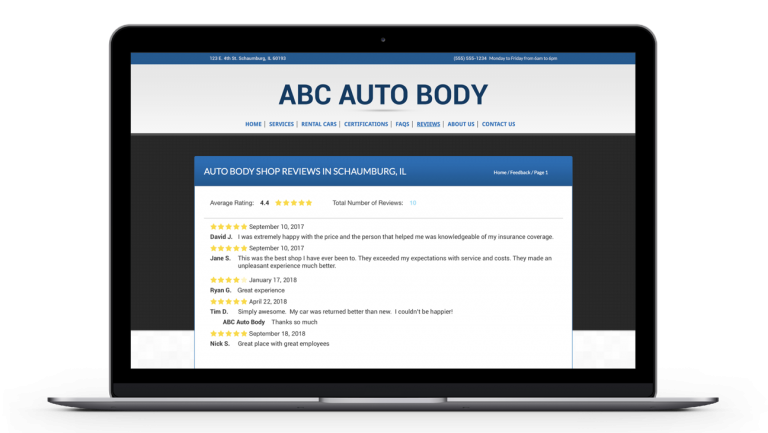Customers and search engines make decisions about your business every day based on ratings and reviews. If you don’t actively manage your reviews, you could be leaving your star ratings up to a few detractors. As a result of the continued focus on reviews in the market, we’ve created the following Review Response Best Practices to help guide you and your staff through the importance of responding to online reviews and which reviews need a response.
Why Should I Respond to Reviews?
Responding to reviews is an opportunity for you to engage directly with your customers and win them over, especially when you respond and resolve issues quickly. Businesses who respond to reviews are 68% more likely to raise their rating by a half-star in 6 months.
It’s also a clear signal to potential customers that you care about the customer experience. In fact, 84% of consumers actually expect businesses to respond to complaints. Not responding is still a response.
Your customers can be your biggest advocates. Responding to reviews can inspire customer loyalty and increase customer lifetime value. Businesses that respond to reviews have seen a 16% increase in customer advocacy. Make sure your customers are helping to put the best version of you on the map!
Which Reviews Should I Respond to?
Responding to any review – positive or negative – is an opportunity for you to engage with a customer. Responding to negative reviews should be a top priority. It allows you to resolve issues as they arise with the goal of winning those customers over and making your business run more smoothly.
It’s important not to neglect positive reviews. Responding to positive reviews allows you to show your loyal customers some love and appreciation.
How Should I Respond to Reviews?
Any response has three key factors: empathy, humanity, and speed. Acknowledging the customer’s feelings can go a long way. Address the issue at hand, be empathetic in your response, and put yourself in the customer’s shoes.
In crafting a response to a customer complaint, the right words and phrases can help you turn dissatisfied customers into advocates, but oftentimes the use of certain words can negate your well-intentioned effort to connect with the customer. Here are 13 words never to use when responding to a customer:
- Fault
- Policy
- Blame
- Department
- Our
- Misunderstanding
- If
- But
- Per
- Just
- Try
- Consider
- Seems
It’s also important to keep any back and forth limited. For complex complaints, try to take the matter offline and then re-establish communication online with how much you appreciate the opportunity to address their concern and look forward to helping them again should any other issues arise.
Additionally, whether it’s several or a single person responding to reviews, messaging should stay consistent while remaining personable and relevant to the customer’s unique experience. Avoid templated responses that don’t directly address the distinct issues cited in the review. Whenever possible, note specific changes or improvements that your business has made as a direct result of a reviewer’s feedback.
Lastly, always remember to show appreciation regardless of sentiment. Telling customers how much you value their feedback can go a long way in minimizing the impact of negative reviews and signaling to potential customers how much you care.
Which Reviews Should I Respond to?
Time is of the essence and you want to ensure your response has maximum impact. Responding to review within 24 hours allows you to address issues while the customer’s experience is still fresh. In fact, 62% of consumers expect a response in 24 hours, and a fifth of those customers have even higher standards, expecting a response within an hour!
While 24 hours should be your benchmark, respond to reviews within the fastest timeframe your organization can support. It’s important to be consistent: don’t respond today within hours and then wait a week to respond to the reviews you receive tomorrow.


